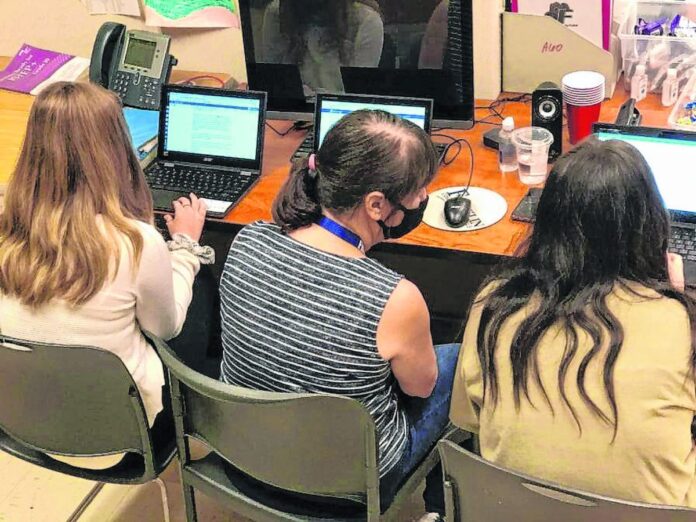A new program to help students who struggled during a school year interrupted by the coronavirus pandemic catch up made its debut this summer at Franklin Community High School.
The program, Extended School Year, helped 53 students who had fallen behind in school attempt to earn back the credits they needed to stay on track for graduation. During the fall semester, 25% of Franklin’s high school students failed at least one class, a trend at most local high schools this year that led to more students in summer school recovery programs.
Franklin’s free program also provides students with meals and transportation, something the district didn’t previously offer in summer academic programs, said Shelbie Murphy, who is overseeing Extended School Year.
Murphy created the program at the request of Superintendent David Clendening and Assistant Superintendent Brooke Worland, she said.
“With the impact of COVID on the school year, students definitely needed the opportunity to gain more credits towards their diploma. This gets them to the starting line at the beginning of next school year to catch up,” Murphy said.
Overall, Franklin schools’ summer offerings included 214 students this year, compared to 195 students in 2019, before the pandemic impacted student learning. Students aren’t required to attend, but can either go to summer school to get ahead on credits and make room on their schedules, or catch up on classes they may have received a failing or poor grade in, she said.
At the county’s two largest districts, Center Grove and Clark-Pleasant schools, the increases were more pronounced. Center Grove High School had 149 students in summer credit recovery in 2020, compared to 222 this year. At Whiteland Community High School, the number jumped to more than 600 this year from less than 500 last year.
Last year at Whiteland Community High School, summer school was virtual. This year, which is in person, students are more on top of their summer school work, said Brittany Hogue, a science teacher.
“I think it’s honestly easier this way,” Hogue said of in-person credit recovery. “Last year, I had to schedule online tutoring sessions trying to match with the summer school schedule. This is much more conducive.”
The difficulty of online learning contributed greatly to students falling behind in school this past year, she said.
“I think this last year has been a very tough year with constant change in schedules. This has been one of the hardest, most challenging years in kids’ lives, so I think we’re seeing an increase because of that,” Hogue said.
Edinburgh Community High School, where students attended classes in person for all but a week and a half of the school year, did not see an increase in summer school learning from last year to this year. In fact, the number was exactly the same, with 27 students attending both years. The number is an increase from 2019, when 19 students attended, according to school data.
The only local high school that had a decrease in summer school attendance from 2019 to 2021 was Indian Creek High School, despite 16% of students failing a class during the spring semester this year, compared to 13% during spring 2019, Principal Luke Skobel said.
“In my credit recovery classes, I have less than 10 students. A couple of years ago that number was over 20,” Skobel said. “I think it boils down to parents and students just want a break from school after the year we have had.”





